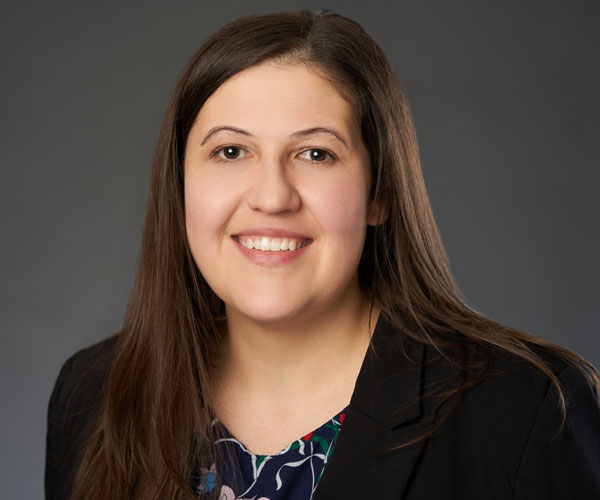MLA Credit Card FAQ – Bona Fide and Reasonable Fees Outside the Safe Harbor
Tomorrow is the Military Lending Act (MLA) compliance deadline for credit card products. Compliance officers have been working hard to implement this rule – and several others for that matter like mortgage servicing amendments and the Home Mortgage Disclosure Act (HMDA). As you endeavor to get through the next few months, be careful with the coffee so you don't end up like this guy:
Today, I want to share another frequently asked question about credit card fees that a credit union may be able to exclude from the 36% Military Annual Percentage Rate (MAPR) cap. We have blogged on the safe harbor for fees. As a reminder, the MLA has a safe harbor for excluding an eligible fee from the MAPR for a credit card account. The rule requires using the average fee charged by five or more creditors with at least $3 billion in outstanding credit card balances at any time during a three year lookback. The DoD suggested looking to other institutions call reports and publicly available account agreements for calculating a safe harbor. However, many credit unions have pointed out though that an account can have fees that are not required to be publicly available under Regulation Z. Unfortunately the DoD did not contemplate that there could be fees that do not require disclosure in advertisements or agreements submitted to the CFPB under Regulation Z.
Section 232.4(d) is structured such that any fee can be excluded from the MAPR as being a "bona fide fee" if it meets two requirements: it is bona fide and it is reasonable. Whether it is reasonable is determined under section 232.4(d)(3) which includes a "like-kind" standard. The safe harbor provision in section 232.4(d)(3)(ii) – i.e., the comparison to the average of 5 fees charged by institutions with more than 3 billion in outstanding balances, is only one of the available options. Section 232.4(d)(3)(iii) has a general discussion of what may be "reasonable" outside the safe harbor:
(iii) Reasonable fee. A bona fide fee that is higher than an average amount, as calculated under paragraph (d)(3)(ii) of this section, also may be reasonable under paragraph (d)(1) of this section depending on other factors relating to the credit card account. A bona fide fee charged by a creditor is not unreasonable solely because other creditors do not charge a fee for the same or a substantially similar product or service. (Emphasis added.)
This indicates that a fee is not unreasonable simply because the credit union's fee exceeds the safe harbor, or the credit union is charging a fee that others are not charging. If there is not publicly available data that allows a credit union to compute an average fee, it may still be possible to claim the fee is reasonable, here's an excerpt from the rule's preamble:
- REASONABLE FEE
Section 232.4(d)(3)(iii) provides that a bona fide fee still may be “reasonable” for the purposes of the exclusion even if that fee is higher than an average amount as calculated under proposed § 232.4(d)(3)(ii). In particular, the Department recognizes that, due to several factors in the marketplace for credit cards, the prices of certain fees could drop from current levels, including to zero, and yet the Department believes that a creditor who charges a reasonable fee still should be permitted to avail itself of the exclusion…Accordingly, the Department has adopted a provision that expressly states that “[a] bona fide fee charged by a creditor is not unreasonable solely because other creditors do not charge a fee for the same or a substantially similar product or service.” (Emphasis added.)
A credit union may be able to make case-by-case determinations for fees and where the fee seems reasonable, exclude that fee from the MAPR – although there would not be a clear safe harbor for doing so.
For more information on which fees are in the MAPR, check out this past blog. NAFCU members can find other resources like our comprehensive MLA Compliance Guide here.
***
Upcoming Webcasts:
What's New and Next in Regulatory Affairs – get the latest in what's coming from Washington from NAFCU's Regulatory Affairs team. The team will provide you with an update on recent rules and upcoming regulations from credit union regulators, including the Consumer Financial Protection Bureau (CFPB) and National Credit Union Administration (NCUA). On-Demand Starting October 3.
How to Detect and Prevent Employee Fraud
Tuesday, October 24 | 2:00 p.m. – 3:30 p.m. ET
About the Author
Brandy Bruyere, NCCO, Vice President of Regulatory Compliance/Senior Counsel, NAFCU
 Brandy Bruyere, NCCO was named vice president of regulatory compliance in February 2017. In her role, Bruyere oversees NAFCU's regulatory compliance team who help credit unions with a variety of compliance issues.
Brandy Bruyere, NCCO was named vice president of regulatory compliance in February 2017. In her role, Bruyere oversees NAFCU's regulatory compliance team who help credit unions with a variety of compliance issues.
